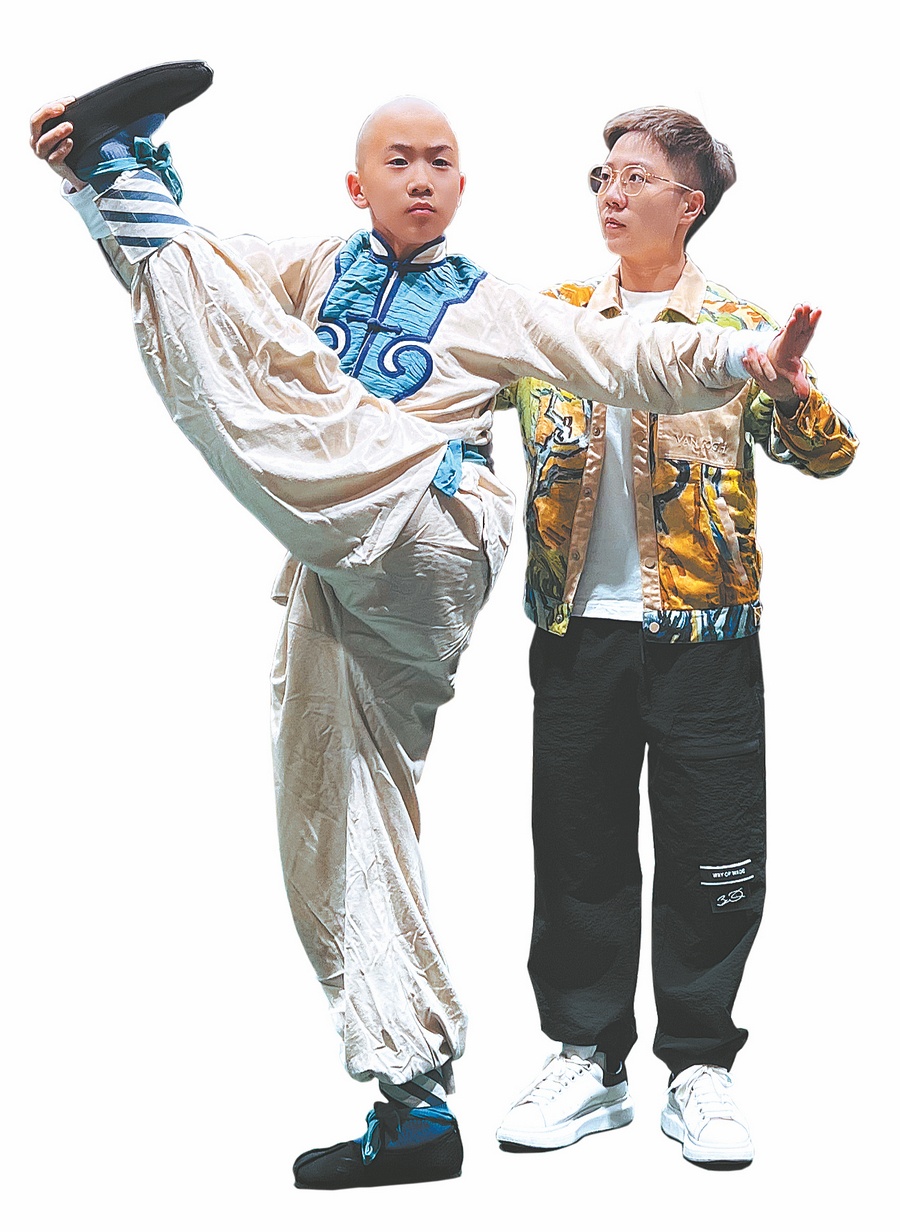

Young performer takes center stage as part of an event to celebrate the Beijing Opera Art's College's past decade's achievements, Chen Nan reports.
As five band members play musical instruments, such as the jinghu (a traditional stringed instrument), cymbals and drums, 19 teenage boys, all dressed in white T-shirts and loose black pants, and whose heads are neatly shaved, line up in a rehearsal room at the Beijing Opera Art's College. An elderly man starts giving instructions, the boys move in a line and then walk quickly onto the stage and form a circle. As they open their mouths, distinctive, high-pitched singing emerges in chorus.
Wrapping up their singing, the boys turn somersaults, one after another. The rolling movement doesn't stop until the elderly man says so, and the boys finish their performance by posing onstage.
One of the boys, 11-year-old Guo Xiaolei, gives a solo display. He steps onto a table and turns 15 somersaults in a row.
"He is the youngest in the class, and he just started studying at the school two months ago," says Wang Wenduan, Guo's teacher, who teaches the Peking Opera class at Beijing Opera Art's College.
Though Guo is a new student, he will play the eponymous role in a Peking Opera production of The Teenager Ma Lianliang, which tells the life story of Peking Opera master Ma Lianliang (1901-66).
Born in Beijing to an ethnic Hui family, Ma learned to perform at Fuliancheng, a renowned Peking Opera school. At the age of 14, he began to perform laosheng (older male roles) before gradually building his reputation through touring Fujian province and Shanghai, and returning to Beijing a star. In 1927, he launched his own troupe.
Guo will play the role of the teenage Ma, which involves lots of singing and martial arts movements, according to Wang.
The Teenager Ma Lianliang is part of an ongoing event launched by the Beijing Opera Art's College to exhibit the school's training and achievements over the past 10 years. The event opens in the capital's Tianqiao Performing Arts Center with a gala, titled Our Story, on Friday, which will be followed by 13 shows performed by the students of the school. The event will run until Nov 7.

According to Qin Yan, president of the Beijing Opera Art's College, the school was initiated and cofounded by Peking Opera master Mei Lanfang (1894-1961) in 1952 and was headed by a number of Peking Opera masters, including Ma.
Besides Peking Opera, the school also trains performers of other kinds of traditional Chinese operas, such as Quju Opera and Pingju Opera. According to a report released by the Ministry of Culture and Tourism in 2017, China has 348 kinds of traditional operas.
The school is also home to 22 winners of the Plum Performance Award, the highest award for traditional Chinese theatrical art.
According to Qin, the Beijing Opera Art's College has worked with traditional Chinese opera companies to ensure students find work after graduation.
"Though traditional Chinese operas are old, they have gained popularity among younger audiences," says Qin, adding that with government support, many artists have been trying to refresh the genre, helping it appeal to contemporary audiences.
Guo's father, who trained to become a Pingju Opera performer, later became a director. Guo grew up listening to traditional Chinese operas, such as Peking Opera, Kunqu Opera and Pingju Opera. His father encouraged him to learn to play the role of laosheng when he was 8 years old, which started Guo's Peking Opera training with Wang.
"It was very hard to learn to sing Peking Opera. The basic skills require hours of practice a day, especially the martial arts moves, such as squatting and turning somersaults," says Guo. "However, I don't want to give up, because, after three years of training, I have fallen in love with Peking Opera."